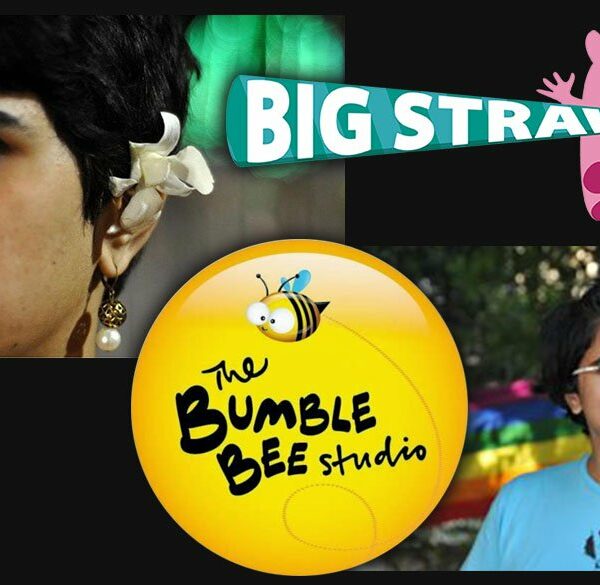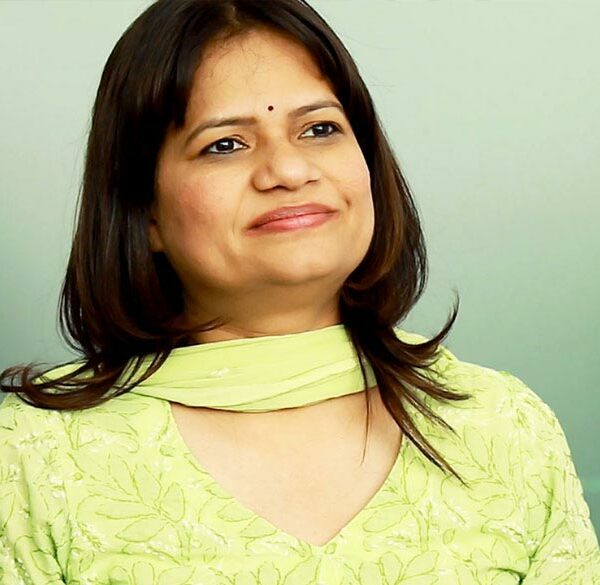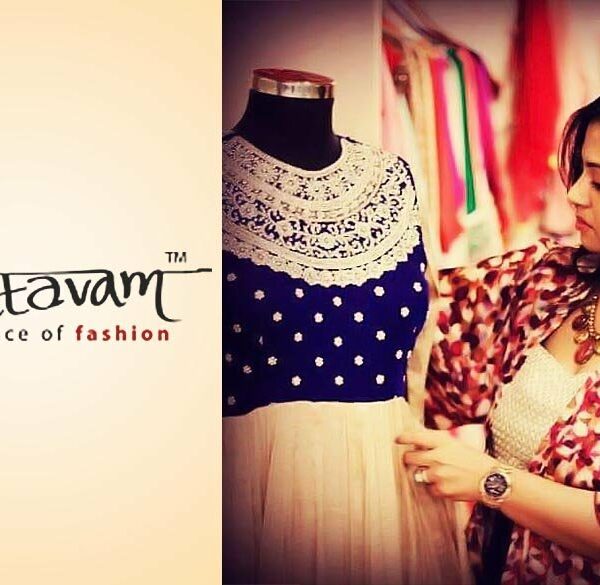They say a film that is good is one that is honest. But no, not here. The beauty of Dear Zindagi is really in its pretense. For, it does a tight rope walk between intellectual high tea of essential life lessons, and a soothing, upfront, breezy way of telling us an any-day story of an any-day girl. That is the only way to tell this story so that it can reach till us, so that it can do its work. So that it can make a difference, after all. Dear Zindagi is not an arty film, not at the least. And yet it is so pleasant and so ahead of its time that you feel almost grateful. Dear Zindagi is among the standing proofs of Indian cinema having come of age. It is a milestone, too, in a way.
Through a very intelligent mix of wisdom and what we commonly call Bollywood masala, Dear Zindagi leaves us with a few threads of deep thoughts to go back home with. Here is a trail of teachings that Dear Zindagi attempts at, cleverly and beautifully, under the lust and luster of Box Office scores.
1. Know Thyself
Jesus said it, Buddha said it. And, for people who are of my kind, see, Shah Rukh Khan said it too.
In the first part of Dear Zindagi, this lanky boy who proudly announces with an appointment in the evening with the Dimaag ka Doctor, says it out the best – loud and clear. Kaira asks him if he goes to the therapist to be able to tell the world that he is gay. He shrugs and says, no. He does that so that he can tell himself that he is gay. This theme comes back a few times over. When Kiara tries to reason out why she left the guys that she did, even as she does it, her therapist pulls her up to face her own truth she has been hiding for. That she leaves them in fear of abandonment lest they end up leaving her later on like her parents once did to her. Right! We reason wrongly, all the time. We explain ourselves, to other and even to ourselves, in a game of mental hide and seek where we pose us to be strong and determinate and worse, rational.
We fake that we know while really, we are even afraid to. And how it never helps, ever! And how it is so very important – therefore – to tell yourself the truth, first. Self reflect!
Self reflection is really not a fanciful intellectual masturbation as it is popularly believed to be, though indeed it is also not a cakewalk (or maybe. How is walking on a cake even easy?). It is rather essential, and maybe even mandatory? An exercise of self-reflection is perhaps the most important step to being sorted, to know the “why” of what you do, and to get your head around understanding how you can regain your power over your own life. When you know why you do certain things or feel in certain ways, you can see yourself through it much clearer, surer and better.
And more? Well, you even break the jinx of “what will people think” with it. As SRK points out (sorry, guys! I’m incorrigible): Jab hum apne aap ko achchi tarah samajh lete hai … toh doosre kya samajhte hai, it doesn’t matter … not at all.
So, of course, know thyself!

2. Parenting – Not a Right but a Responsibility
This one thing cannot be ever overemphasized, that popping kids is not a destination but just the beginning of a lifelong journey. And no, you do not get to step up pedestals just by having made babies. Our society forces parenting as a natural step of graduating in after marriage life. And then it also takes parenting for granted, which is one of the most essential and yet understated art of life. And of course, it doesn’t end there, for then it also comes around in another way to spell our duties of children towards parents, much more than it even bothered to stop by when the very process of parenting was underway. Everyone snide over how well or not children have taken care of their parents, made them proud and given them care, standing up for them and so on, when their turns came as grown-ups. Little do we ever stop to ask how well parents have had been parents.
And even as we narrate parenthood we have tall stories of sacrifice and painted glories, while really, we hardly stop to look at – assess – how happy the children has been, how safe, secured and well loved?
However, here’s the bad news. For all we know, over half of our psychological makeup is comprised of genetic factors and early childhood conditionings. How we lead our lives, happily or sadly, and how we react to what comes upon us in later lives has much to owe to how we have been treated, how we have grown up as kids, and that in an unbelievable proportion. And so more than the scoreboards of board exams, school annual functions and sports day medals, choices of career and of jobs, it is no less or even more important perhaps to ask what memories do parents leave for their kids, what they did to give them hope and make them feel safe. And if one is not ready, not equipped or not in pace, let them opt out of it.
Dear Zindagi opens in front of us a rather unusual scene where – strung at very high notes – the child turns around to level allegations against her parents. Of the duties not meted out, of the loopholes that left, of the voids that they created. “Why don’t you stop being parents then,” asks Kiara, and opens a door to a prohibited question that – it is high time – we learn to ask now.
It is time to take parenting more seriously than to make children, and Dear Zindagi arrives us as that, for once, ever so slightly.
3. Good, Bad and Ugly!
Who ever said that pleasure is guilty, and sacrifice the only way to martyrdom, the only stories to tell your children about? I will tell you who did. Everyone! From parents to books to movies, they all told us that the right way is always tough, long, full of hurdles. The good is always the one who suffers, who gives away, who makes way. And so when it came to choosing our path, we simply do that which is glorified. We set up a tall task and set out to achieve it, irrespective of our own wishes, aims and weaknesses. They say – decisions make themselves, if you let them. Not no, we for one do not cower to that. We brave it, instead. We take the longest routes, the hardest paths and the toughest decisions for in them lie our definitions of accomplishments and accolades. We brave it even if t breaks us down to do that. We rise up to the battle, and the battle is the only way we know to survive. No, we do not take it easy. We do not believe in easy!

But maybe, just maybe, the right is what makes it easy for you, for now at least? As S when we are really not at the best of our forms, maybe it is the time we unwind a little and take the pressure off them from us. What is life, but, if not for a few light moments of letting you just be, off the pressure of performance, difficulties, sufferings? Take the lid off and let go of the steam, and then, maybe, decisions will really make themselves just alright? And maybe – for all you know – we will still be just fine? Or, happy. Yes that, much more importantly.
4. Face your Demons
We have all been there, done that. We have denied ourselves our meannesses, somehow assuming that if we did not admit to being jealous, angry or upset, it will – poof – just go away. You wish! We have grown up to know that a smile is virtuous and a drop of tear, a weakness. And so we act, accordingly. Of course one can argue that to show your strongest, brightest, prettiest side to the world is one we owe back to the Darwinian theory of evolution in which we need to come out better than another to be able to win, survive. But really, how happy does it make us, where does it take us instead?
And worse, know what? I do not know who exactly ever said it, but I have to do the honor of saying it again. That suppression does not mean evaporation, and that if you do not find it, it will find you. It is time to face your demons. It is time perhaps to give ourselves, the whole of it, a chance, to give ourselves a voice beyond the pretense.
With “Tum agar khulke ro nahi sakogi … toh khulkar has kaise sakogi?” and with “Safe feel karne ke liye pehle saare dar mitana zaroori hai” among several other moments, Dear Zindagi gives us a slight, fleeting yet deliberate peek into the hidden treasures of vulnerabilities. To openly cry, to openly be angry and throw things, to own or to disown, and to openly be able to profess love despite knowing you can be turned down… maybe it is all worth taking a risk for? And what is a risk, even? If you feel it, you might just as well say it! And with it, only with it, will you come home to yourself and others.

5. The weights on romantic relationship
We have all been here too, waiting for someone to arrive with the Midas touch to transform our lives. To save the damsel in distress, us. Cinderella complex, psychologists call it. Well, the bad news is that it will never happen. Yes, you just read it right. It will never happen.
Of course, it is not just utopia but plain unfair, too. That, that one relationship and that one person may not be able to carry the entire weight of your hopes and expectations, relations and upsets, coffee and conversation, mind, body and spirit. Yes, it is not right to expect it to do that, even. We should be ready to face this much of the truth that lays bare and honest before us, that no prince charming on horseback will come with a silk handkerchief to wipe all the tears we have stored up over all our years of existence, and with one stroke of a wand set everything right. No darling, that won’t happen, from you to him or from him to you too. And it is therefore also time to assume your own power, carry out your own rescue, and let go of the image of a savior – a knight on horseback – in the process.

6. Take your power back!
Often than not, we weigh it down on others and hold them responsible for what we have come to become – our parents – or where we go from here – our lovers. But no, it won’t help – to cry, blame, cower. To reason out, to give excuses, to shift responsibilities. For all you know, at the end of it all it is still about you. It is still about me. And we must arise. “Agar hum apni zindagi ka steering wheel apne haath mein nahi lenge na … toh koi doosra driver seat par baith jayega” says he.
Now! This cannot be said enough, ever, of course. That, after all and everything, the real power lies with us. It is our life, our one and only. It is our decision, after all, to take. To assume the rights and the responsibilities. It is ours to own and to steer.
“Zindagi ek jigsaw puzzle ki tarah hai … mere jaise log us puzzle ke khoye hue tukde, sirf dhoondne aur jodne mein madad kar sakte hai … par only you can complete the puzzle.” says the man towards the end. This… it takes us back to our point one where we started from: Know yourself. Find your demons and your angels. Sort them out. Go easy, but. Hold on, there’s no hurry. Forgive, let go. And then, assume your power. Come back. Embrace life!
Simple, not so simple? But it is worth it all. For at the end of it all, Dear Zindagi is the rendezvous we owe ourselves in life. It is not one of those movies which are likely to stand the test of time, and it is not life changing as well. And yet there is certain tightrope walk that makes it memorable in its own way. Dear Zindagi is a journey about your way back home, to yourself. This journey is one that will wait for us, as far as we may try to hide away from it. And for all you know, it is not only worth it but also, perhaps, is the only way to go, anyway. Because – “Har tooti hui cheez jodi ja sakti hai.” So, what are you waiting for?












